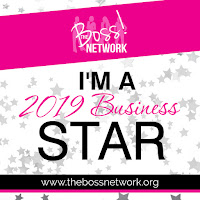The Power of Mindset By Dr. Tennille Johnson, Pharm.D
Dr. Tennille Johnson is a Mother, Clinical Pharmacist, Fashionista, Community Activist, Member of Delta Sigma Theta Sorority, Inc, and Entrepreneur. She is the CEO and Co-Founder of Scrubs To The Rescue, a local retailer of medical uniforms and accessories located in Houston, Texas. She believes when you look good, you feel good.
***************************************
Mindset refers to a set of attitudes, beliefs, and assumptions that shape a person’s thoughts and behaviors about themselves and the world around them. It can be influenced by experiences, cultural background, and personal values, and can impact approaches to challenges, success, and failure.
There are two main types of mindsets: a fixed mindset and a growth mindset. In a fixed mindset, individuals believe that their abilities and intelligence are fixed and cannot be changed or developed. They may avoid challenges, fear failure, and feel discouraged by setbacks. In contrast, individuals with a growth mindset believe that their abilities can be developed through hard work and dedication. They embrace challenges, learn from failure, and are motivated by growth and learning.
We will focus on strategies that help to develop a growth mindset that can lead to increased resilience, adaptability, motivation, creativity, achievement, and overall well-being, both in personal and professional settings. This is all based on how we talk to ourselves and shifting from negative self-talk to more positive and growth-oriented thinking.
The first step in changing negative self-talk is to become aware of it. Start by paying attention to your thoughts and identifying patterns of negative self-talk. Notice when you are using self-criticism or limiting beliefs to describe yourself or your abilities. Once you have identified negative self-talk patterns, challenge them. Ask yourself if the negative thought is accurate, and if there is evidence to support it. If not, replace it with a more positive and realistic thought. For example, instead of saying "I can't do this," try saying "I may struggle at first, but I can learn and improve."
The next step is to practice self-compassion. Instead of being harsh and critical towards yourself, practice self-compassion. Treat yourself with the same kindness and understanding that you would offer a close friend. Remember that making mistakes and experiencing setbacks is a natural part of the learning and growing. Use positive affirmations as much as possible. Affirmations can be a powerful tool for shifting negative self-talk. Repeat positive affirmations to yourself regularly, such as "I am capable and competent," "I am worthy of success," or "I am resilient and can overcome any obstacle."
Always surround yourself with positive influences, such as such as supportive friends and colleagues, uplifting books and podcasts, and inspiring mentors. Focus on solutions, not problems. Instead of dwelling on problems and setbacks, focus on finding solutions and taking action towards your goals.
Lastly, practice gratitude. Cultivating a sense of gratitude can also help shift your mindset to a more positive one. Regularly take time to reflect on what you are grateful for in your life and your business, and focus on the positive aspects of your experiences and achievements.
By implementing these strategies and practicing them consistently, you can shift from negative self-talk to a more positive and growth-oriented mindset. This can ultimately help achieve greater success and fulfillment in both life and business.
Learn more about Dr. Tennille Johnson
Websbite: www.scrubstotherescue.com LinkedIn: https://www.linkedin.com/company/scrubs-to-the-rescue Twitter: https://www.twitter.com/scrubstothrescue1/ Facebook: https://www.facebook.com/scrubstotherescue/ Instagram: https://www.instagram.com/scrubs2therescue/





Comments
Post a Comment